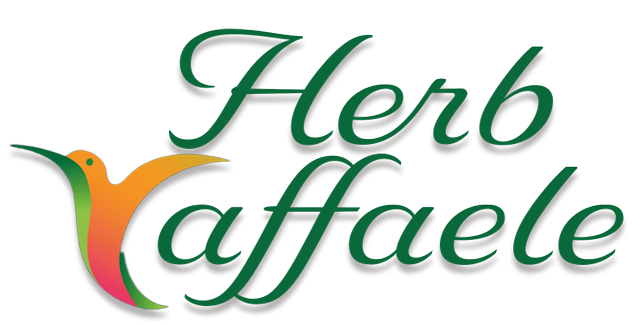West Indies Birds
Following his first year in college, Raffaele visited Puerto Rico as part of an international educational program. In anticipation of the trip, he borrowed from a local library the only book on the birds of the West Indies, a book written by none other than James Bond, a real ornithologist based in Philadelphia, not the fictitious English spy. (Ian Fleming, the author of the James Bond spy novels was an amateur birder who took the name of his hero from this very same book in his personal library.)
During this two month visit, Raffaele became enthralled with the distinctiveness and beauty of Puerto Rico’s avifauna so that when, eight years later, he decided to shift his career away from teaching, he revisited Puerto Rico to further study the island’s birdlife.
Good fortune resulted in Raffaele being hired by the Puerto Rican government to do exactly what he had been doing on his vacation, consequently, he remained on the island for 7 years, ultimately becoming the head of wildlife planning for Puerto Rico.
During this time, Raffaele discovered approximately 15 established bird species previously unknown from Puerto Rico.
These, apparently, had been brought to the island via the pet trade and had become established. He also drafted Puerto Rico’s first endangered species list, wrote many other conservation-related documents, and began his first book – A Guide to the Birds of Puerto Rico and the Virgin Islands. So began his life-long dedication to Caribbean birds.
Author
Over a decade later, at that point serving as lead conservationist for Latin America and the Caribbean within the US Fish and Wildlife Service, Raffaele found the same circumstance to be true throughout the hemisphere – lack of local awareness leading to limited concern for living things.
To address the matter Raffaele then wrote, in collaboration with 4 other authors, a comprehensive book on all the birds of the Caribbean islands. Again, endemic birds where highlighted, full-page illustrations being dedicated to many of them. Perhaps even more importantly, Raffaele made the book’s outstanding artwork available to non-profit organizations throughout the Caribbean to strengthen their environmental education efforts. As a result, outreach the length of the archipelago has benefitted from this extraordinary bird art.
Fast forward a few decades and we come to Raffaele wrapping up his 30-year career with the US Fish and Wildlife Service as chief of the Division of International Conservation.
Having learned much through his exposure to conservation efforts around the world, from small, remote communities to grand international treaties, he believed not only that resource conservation was fighting a losing battle, but also that in large part this was because of professionals in the field being their own worst enemy – a disservice to both the people, the animals, and the ecosystems they aimed to serve.
This sentiment led to Raffaele’s latest book, Revoyage of the Mayflower: Societal Values – Conservation’s Driving Force. This work makes a powerful case for how critical each community’s values are to the success of conservation efforts and lays out a 9-point framework for effectively achieving conservation.
International Conservation
Raffaele’s lengthy experience in Puerto Rico coupled with his graduate work in ecology provided excellent preparation for the position he took in 1983 with the US Fish and Wildlife Service as coordinator for the agency’s Latin America and Caribbean program. During a 12-year stint in this capacity, Raffaele chose not to take a typical approach of focusing on threatened species and habitats throughout the region and engaging in efforts to conserve them. Rather, he aimed to bolster the capacity of local individuals to identify and address their conservation problems.
To achieve this, he identified local universities within the region with the interest and capacity to train future professionals. At this particular time, no universities in Latin America or the Caribbean offered graduate degrees in wildlife conservation. Consequently, Latin Americans interested in this field had to come to the US for graduate training.
Raffaele saw numerous drawbacks to this circumstance. To remediate this deficiency, Raffaele helped create the first programs of this kind in Central America (Costa Rica), northern South America (Venezuela), southern South America (Argentina), and Brazil. Two graduate programs were also created in environmental education (Venezuela and Mexico), also the first of their kind in the region. Such programs created the first locally trained experts in wildlife conservation in many countries of the hemisphere.
In 1995 Raffaele was elevated to the position as chief of the US Fish and Wildlife Service’s Division of International Conservation broadening his responsibilities with regard to species, regions, and treaties requiring implementation. Among his responsibilities was implementation of six international treaties. Four of these related to migratory birds (treaties with Mexico, Canada, Russia, and Japan), one concerned wildlife and protected areas in the Western Hemisphere, and the last addressed critical global wetlands (Convention on Wetlands of International Importance).
Also in his charge were five pieces of legislation directed at conserving African elephants, Asian elephants, rhinos & tigers, great apes, and sea turtles. Each of these was funded with nearly $2 million annually, thus their contribution towards the survival of these species was significant. Perhaps most importantly, Raffaele shifted international efforts of the Service to focus on the attitudes and values of local people and communities rather than on the status of wildlife and habitats. During his 18-year tenure as chief of the division, Raffaele grew the international budget over 6-fold to approximately $24 million annually.
His book Birds, Beasts & Bureaucrats relates some of his experiences during his time in Puerto Rico. Revoyage of the Mayflower: Societal Values – Conservation’s Driving Force presents his perspectives on how nature conservation can be achieved more effectively in the future.
Recognitions
Lifetime Achievement Award: BirdsCaribbean
Alexander Skutch Award: Excellence in Neotropical Ornithology
Secretary General’s Award: Wetland Person of International Importance (Ramsar Convention)
Gary T. Myers Award: For Conservation of Migratory Birds
Meritorious Service: Department of the Interior
Omar Dengo Award: National University of Costa Rica
UNELLEZ Award: E. Zamora (Venezuela University)
